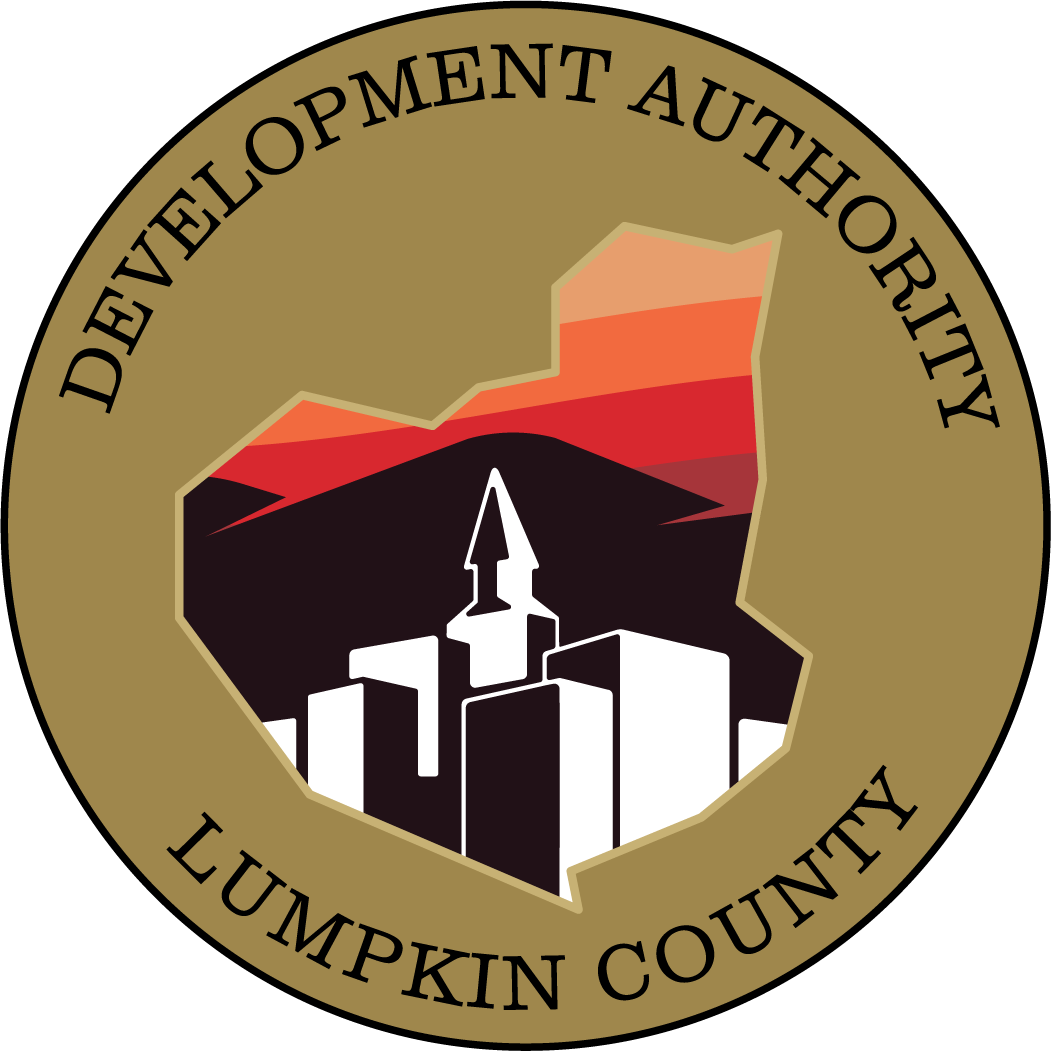Updated August 6, 2020

Talk With Us
We are also happy to schedule a call with you individually to discuss challenges your business may encounter or to further connect you with technical assistance related to any of the resources listed below. Feel free to email us to schedule a one-on-one meeting with the Development Authority of Lumpkin County.
COVID-19 Business Resources Available Now
As you begin to strengthen your business strategy during this period of uncertainty, use these immediate resources. We will quickly share more information and resources as they become available in the coming days and weeks.
Notice: Additional Economic Injury Disaster Loan Funding
With the additional funding provided by the new COVID-19 relief package, SBA will resume processing EIDL Loan and Advance applications that are already in the queue on a first come, first-served basis.
Georgia has been issued a Disaster Declaration by the U.S. Small Business Administration (SBA). What this means is that the SBA is offering loans for working capital to Georgia small businesses through the programs and initiatives in the Coronavirus Aid, Relief, and Economic Security (CARES) Act that was just passed by Congress. Follow the links below for more information on each program or download the The Small Business Owner’s Guide to the CARES Act.
- Economic Injury Disaster Loans and Loan Advance
- This program allows small businesses (under 500 employees) and non-profits to apply for a disaster loan. This includes self-employed and sole proprietorships.
- Payment of the loan is deferred for at least 6 months. Loan rates are 3.75% for small businesses and 2.75% for private non-profit organizations with a term of up to 30 years.
- This loan can be used to pay for standing debt, payroll, and any other bills that can’t be paid because of the crisis.
- Applicants can receive a $10,000 grant as a first step in the loan. SBA will award this grant within 3 days of an application submitted to help provide a bridge of funding to the business or non-profit while applications are reviewed.
- SBA Express Bridge Loans
- Access to Capital
- The SBA Debt Relief program will provide a reprieve to small businesses as they overcome the challenges created by this health crisis. Under this program:
- The SBA will also pay the principal and interest of new 7(a) loans issued prior to September 27, 2020.
- The SBA will pay the principal and interest of current 7(a) loans for a period of six months.
COVID-19 Economic Injury Disaster Loans Lending Limits Increased
- The U.S. Small Business Administration has increased the maximum amount small businesses and non-profit organizations can borrow through its COVID-19 Economic Injury Disaster Loan (EIDL) program. Effective April 6, 2021, the SBA raised the loan limit for the COVID-19 EIDL program from 6-months of economic injury with a maximum loan amount of $150,000 to up to 24-months of economic injury with a maximum loan amount of $500,000.
- Questions about SBA COVID-19 EIDL and disaster loan payments can be emailed to DisasterCustomerService@sba.gov or directed to SBA’s Customer Service Center at 1-800-659-2955 (1-800-877-8339 for the deaf and hard of hearing).
Additional Resources:
Notice: PPP Resumes April 27, 2020
The SBA will resume accepting Paycheck Protection Program applications from participating lenders on Monday, April 27, 2020 at 10:30 am EDT.
The U.S. Department of Treasury has released more information on the Paycheck Protection Program (PPP). Small businesses and eligible nonprofit organizations, Veterans organizations, and Tribal businesses described in the Small Business Act, as well as individuals who are self-employed or are independent contractors, are eligible if they also meet program size standards. Under this program:
- This program allows small business (under 500 employees), non-profits, self-employed and sole proprietors to apply for a forgivable loan to cover two and a half months of salaries and benefits for employees.
- Costs that can be covered under this program include: salary (up to $100,000 of a salary if it’s higher), all benefits including health care, and state and local taxes for employees. This program funding can also be used to cover mortgage and rent payments and utilities. 75% of the funds must be used for salaries.
- The loan has a rate 0f 0.5% and a term of 2 years.
- The maximum loan amount will be 2.5 times the entity’s average monthly costs for total salaries and benefits.
- The loan can be forgiven – either partially or in its entirety – if the entity shows that it retained or rehired its employees within 8 weeks of receiving the funding (or by June 30th – there is still a bit on confusion on this part). If all employees are retained or rehired – the loan is 100% forgiven. If 50% of the employees are rehired, then 50% of the loan is forgiven.
Program details:
- SBA released guidance on this program on March 31, 2020. Here are the details. On March 30, President Joe Biden signed the PPP Extension Act of 2021 into law, extending the Paycheck Protection Program an additional two months to May 31, 2021, and then providing an additional 30-day period for the SBA to process applications that are still pending.
- The application form to use with your local SBA bank.
- For a top-line overview of the program
- If you’re a lender
- If you’re a borrower
If you are interested in applying for the Paycheck Protection Program, please contact your financial institution to see if they are an SBA lender, or would like to become one.
The Coronavirus Aid, Relief, and Economic Security (CARES) Act allocated $350 billion to help small businesses keep workers employed amid the pandemic and economic downturn. Known as the Paycheck Protection Program, the initiative provides 100% federally guaranteed loans to small businesses. Importantly, these loans may be forgiven if borrowers maintain their payrolls during the crisis or restore their payrolls afterward.
April 13, 2020 GDOL Update on Federal Stimulus Bill: The Georgia Department of Labor (GDOL) is updating its current systems to distribute federal unemployment funds as part of the CARES Act (Coronavirus Aid, Relief, and Economic Security) bringing economic relief to many Georgians.
- The Federal Pandemic Unemployment Compensation program, or FPUC, provides an additional $600 weekly payment to any individual eligible for any of the Unemployment Compensation programs – State and Federal. The GDOL will begin sending this additional payment to those currently receiving state unemployment benefits beginning this week. This supplement will be an additional payment to regular weekly state unemployment benefits and will include all eligible weeks beginning with the week ending 4/4/2020.
- Pandemic Unemployment Assistance or PUA, is the program that will provide unemployment benefits to those not ordinarily eligible for them. This includes individuals who are self-employed, gig workers, 1099 independent contractors, employees of churches, employees of non-profits 501C3s, or those with limited work history who do not qualify for state unemployment benefits. The GDOL has modified its current online unemployment application adding new questions to better identify those individuals who may be eligible for PUA. See detailed instruction on PUA.
- The Pandemic Emergency Unemployment Compensation program, or PEUC, allows for up to an additional 13 weeks of benefits added to the end of regular unemployment benefits. This means claimants may collect unemployment benefits for a longer period of time than under normal circumstances. The GDOL recently received the guidelines on PEUC from the USDOL and is working quickly to develop and implement the new PEUC system.
- Read more about the CARES Act
Employers are required to file partial claims on behalf of their employees whenever it is necessary to temporarily reduce work hours or there is no work available for a short period.
Any employer found to be in violation of this rule will be required to reimburse GDOL for the full amount of unemployment insurance benefits paid to the employee. Helpful resources are listed below.
- Emergency Rules Adopted 03-19-20
- Multi-Claims Upload, FAQs, and Updated Filing Instructions for Partial Claims
- NEW Information for filing for unemployment, mandatory filing by employers for partial claims, and reemployment services
- What To Do After Your Claim Is Filed
- COVID-19-Employer-Filed-Claims-Filing-Instructions
- COVID-19-Employer-FAQs
- COVID-19-Employer-Filed-Claims-Desk-Aid
- GDOL Employer Handbook
The Families First Coronavirus Response Act (FFCRA or Act) requires certain employers to provide their employees with paid sick leave or expanded family and medical leave for specified reasons related to COVID-19. The Department of Labor’s (Department) Wage and Hour Division (WHD) administers and enforces the new law’s paid leave requirements. These provisions will apply from the effective date through December 31, 2020.
From Internal Revenue Service (IRS) – Tax Extension information.
The U.S. Department of Labor has resources to help workers and employers prepare for the COVID-19 virus.
When business is disrupted, it can cost money. Lost revenues plus extra expenses means reduced profits. Insurance does not cover all costs and cannot replace customers that defect to the competition. A business continuity plan to continue business is essential.
Tools to help your Small Business connect remotely.
Resources to help your small business manage through uncertainty.
At Facebook, we’re working to keep people safe and informed about the recent outbreak of COVID-19. We know that as members of the communities you serve, businesses like yours may also be experiencing unexpected challenges, and we’re committed to providing as much support as possible.
